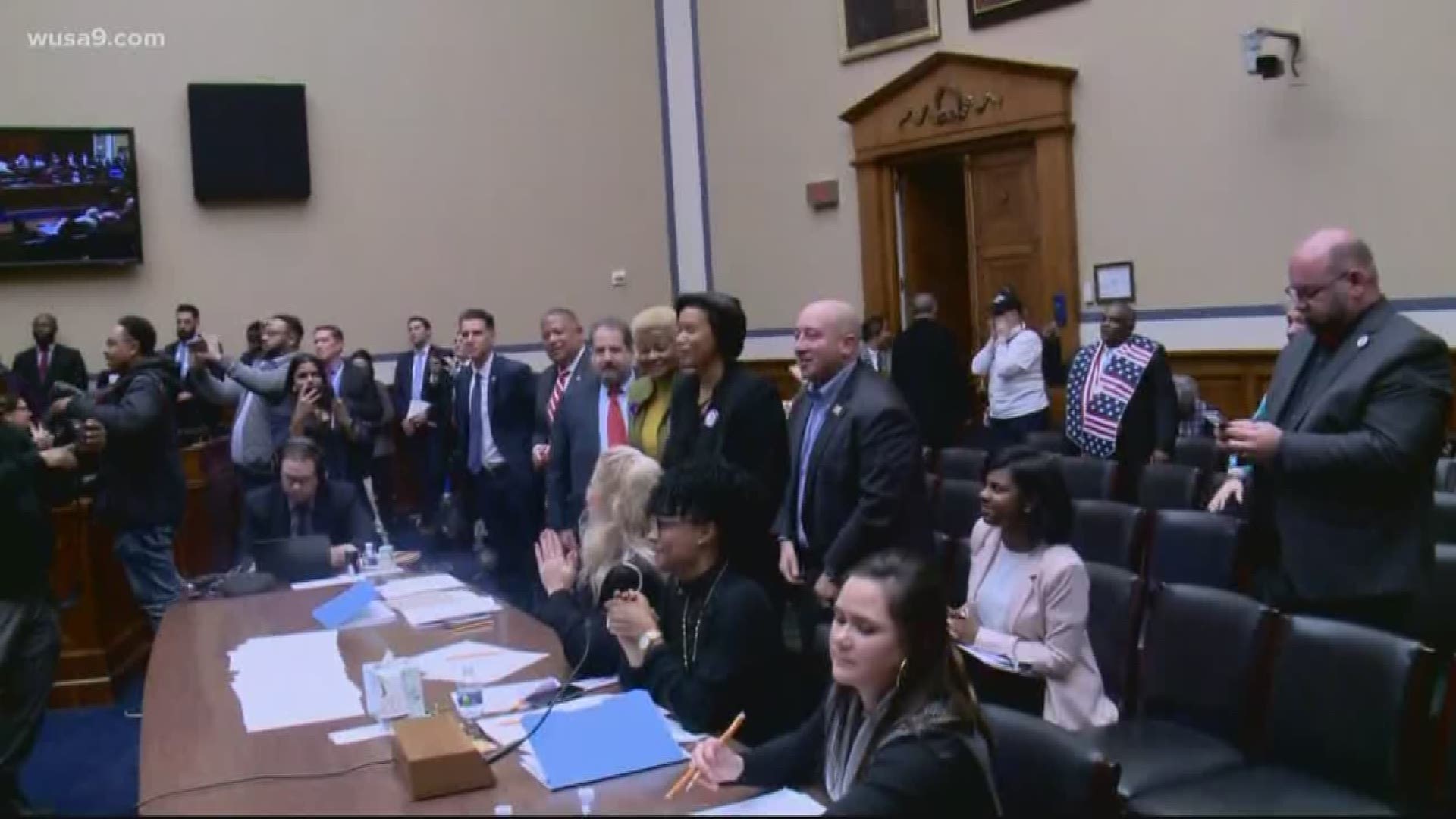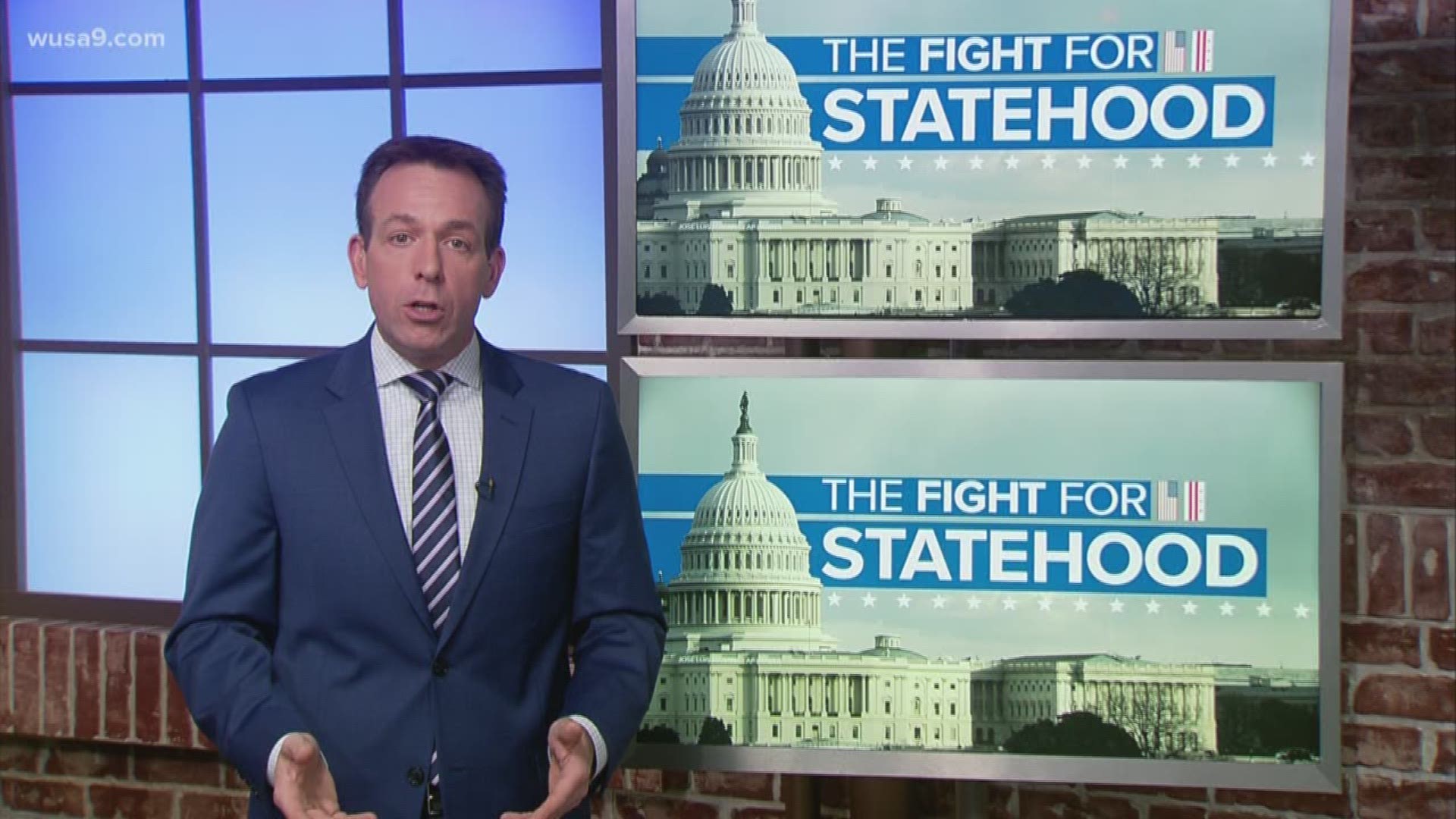WASHINGTON — The House Committee on Oversight and Reform passed Congresswoman Eleanor Holmes Norton's (D-D.C.) bill on D.C. statehood Tuesday, sending H.R. 51 to the House floor for the first time since 1993. The vote was split down party lines, 21-16.
The passage of the bill marks the first time in 27 years that members of Congress will vote on the possibility of D.C. becoming the 51st state, giving D.C. one House member and two senators.
"We emphasized today what supporters of statehood already knew coming in: DC statehood is constitutional, we have a plan in place to make it happen, and it is the only way to fix the injustice of denying more than 700,000 Washingtonians a vote in Congress," D.C. Mayor Muriel Bowser said.
H.R. 51 was scheduled for a markup Tuesday, which is the process where a committee closely scrutinizes and rewrites bills, proposes amendments and votes on a bill. Sixteen amendments were proposed during the markup, including provisions on abortion, immigration and gun rights; all 16 were rejected.
"It is fitting that this historic vote happened in the midst of Black History Month, for I dare say – achieving D.C. statehood would be black history," Bowser said.
According to Norton's office, the bill would make most of present-day D.C. into the State of Washington, Douglass Commonwealth, with the remaining territory designated as the nation’s capital, and remaining without electoral representation.
In a live interview on WUSA9, following the State of the Union Address, House of Representatives Majority Leader Steny Hoyer (D-MD) promised to bring H.R. 51 to a vote on the House floor before the summer recess.
To pass a bill through the House, 218 votes are needed. Norton's bill has 223 co-sponsors.
House Speaker Nancy Pelosi and Houser Majority Leader Steny Hoyer have both supported D.C. statehood.
According to the D.C. Statehood Office, 86% of D.C. voters support statehood. A 2019 poll from Gallup found most Americans don't believe D.C. should become a state. The survey called 1,018 people across the United States and found 29% of people are in favor of statehood for D.C., while 64% oppose it; 8% of those surveyed didn't have an opinion on the matter.
The GOP's main argument against statehood is that they believe making D.C. a state would require a constitutional amendment; a lengthy and arduous ordeal that requires the consent of two-thirds of both chambers of Congress and two-thirds of the current states.
That option is seen as highly unlikely given the partisan make-up of Congress and the state legislatures plus the vocal opposition of Republicans.
Because of its residents' political leanings, D.C. as a state would very likely add two Democrat senators and a Democrat House member to Congress.
President Trump offered this regarding statehood during a Meet the Press interview in 2015: "I'd certainly look at it."
Although unlikely given the political landscape, if the House were to vote to approve H.R. 51 and the Senate moved swiftly to concur, in theory, the President could sign the D.C. statehood bill into effect before America's birthday on the Fourth of July.
Here are seven things you need to know about D.C. statehood.
According to the Tax Foundation, D.C. residents pay some of the highest federal taxes per capita in the nation, but have no representation in the House or the Senate. If D.C. becomes a state, residents will finally have a say on how their tax dollars are spent.
A majority of Democratic presidential candidates already want to make D.C. the 51st state.
Washington, D.C. has more residents than Wyoming and Vermont, according to the U.S. Census.
The last time the statehood bill went up for a vote was in 1993, but 105 Democrats and 172 Republicans voted against it.
A recent Gallup Poll showed most Americans said "No" to statehood for the District of Columbia.
If D.C. becomes a state, it could be called the "State of Washington, D.C.," in which "D.C." stands for "Douglass Commonwealth" in honor to abolitionist Frederick Douglass, who lived in the District. It could also be called the "New Columbia."
The new state would be separate from the Federal District of Columbia. The Federal district would include the White House, the Capitol Building, the Supreme Court, the National Mall and nearby monuments. The remaining parts of the District would become the "State of Washington, D.C." or the "New Columbia."


